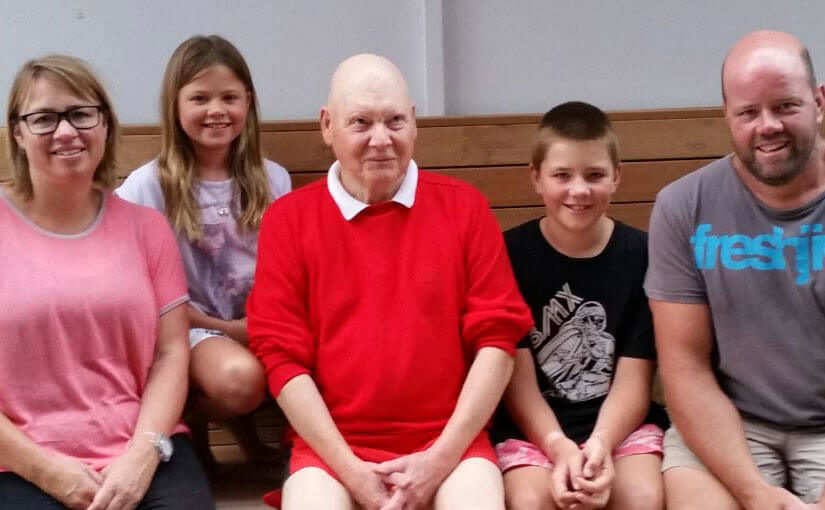In 2011, at the age of 70, Hamish Campbell was treated for kidney stones. He was referred to a urologist for follow up treatment who decided to order a Prostate Specific Antigen (PSA) test as part of his follow up. The test can indicate possible prostate cancer.
The PSA test result came back as high – although the test is not diagnostic, it indicates to doctors that further investigations and monitoring may be necessary.
In Hamish’s case further testing was carried out; and a biopsy confirmed a diagnosis of prostate cancer.
Hamish’s doctor decided at this point to monitor him with regular testing of his PSA level to see if the cancer was progressing.
For a while his PSA level was trending down, but when doctors saw it beginning to rise, they decided that treatment was needed.
Hamish underwent radiation therapy and hormone suppression therapy to treat his cancer, and his last round of radiation treatment was in March 2015. The hormone suppression treatment is set to continue for another twelve months.
As well as being responsible for his diagnosis, pathology is an important part of Hamish’s treatment. It enables the doctors looking after him to determine how well the treatment is working and also to monitor his health overall.
Hamish said: “The very first day with the kidney stones the first thing the doctor did was send me down to pathology.
Each doctor’s visit they’ve relied on the results of pathology tests to plan the next move, without pathology I don’t know where we’d have been.”
In order to look after Hamish’s health overall he saw a whole team of doctors and 2 specialist nurses who often referred him for pathology testing to check on various aspects of his health; this included urine tests, and blood tests for anaemia and vitamin D levels.
Hamish describes pathology as a “critical link in the chain” of his healthcare.
He is now doing well and is thankful for the support he received alongside his medical care. He joined the Geelong Prostate Cancer Support Group and says:
“It was one of the best things I’ve done. It’s really helped because we’re all in the same boat.”
Hamish is a passionate advocate for the group, which supports men with prostate cancer and their partners.
Discovering he had cancer and undergoing lengthy treatment took a great toll on Hamish’s mental health and he is grateful to all those who have helped him through including his medical team, support group and mental health services.
And pathology is still an important part of Hamish’s healthcare, so that he can always know where he stands.

